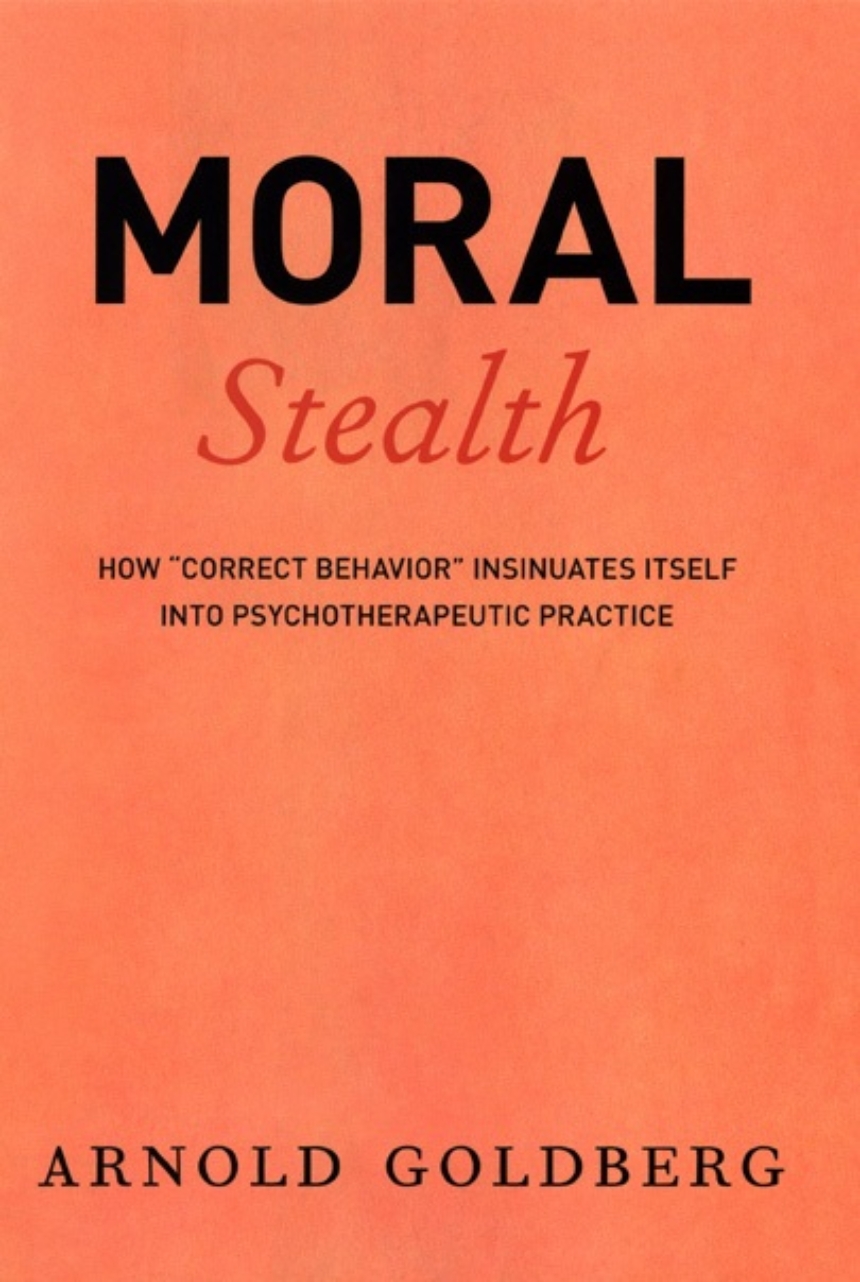Moral Stealth
How "Correct Behavior" Insinuates Itself into Psychotherapeutic Practice
Moral Stealth
How "Correct Behavior" Insinuates Itself into Psychotherapeutic Practice
A psychiatrist writes a letter to a journal explaining his decision to marry a former patient. Another psychiatrist confides that most of his friends are ex-patients. Both practitioners felt they had to defend their behavior, but psychoanalyst Arnold Goldberg couldn’t pinpoint the reason why. What was wrong about the analysts’ actions?
In Moral Stealth, Goldberg explores and explains that problem of “correct behavior.” He demonstrates that the inflated and official expectations that are part of an analyst’s training—that therapists be universally curious, hopeful, kind, and purposeful, for example—are often of less help than simple empathy amid the ambiguous morality of actual patient interactions. Being a good therapist and being a good person, he argues, are not necessarily the same.
Drawing on case studies from his own practice and from the experiences of others, as well as on philosophers such as John Dewey, Slavoj Žižek, and Jürgen Habermas, Goldberg breaks new ground and leads the way for therapists to understand the relationship between private morality and clinical practice.
144 pages | 6 x 9 | © 2007
Philosophy: Ethics, Philosophy of Society
Psychology: Clinical Psychology, General Psychology, Social Psychology
Reviews
Table of Contents
Introduction
PART I: THE CONFRONTATION BETWEEN CLINICAL PRACTICE
AND MORALLY CORRECT BEHAVIOR
1. Setting the Stage
2. Positioning Psychoanalysis and Psychotherapy for Moral Concerns
3. Moral Stealth
4. The Moral Posture of Psychoanalysis and Psychotherapy: The Case for Ambiguity
PART II: DIFFICULTIES IN RECONCILING
CORRECT BEHAVIOR WITH PSYCHOANALYTIC
AND PSYCHOTHERAPEUTIC PRACTICE
5. A Risk of Confidentiality
6. On the Nature of Thoughtlessness
7. I Wish the Hour Were Over: Elements of a Moral Dilemma
8. Psychotherapy and Psychoanalysis and the Problem of Ownership: An Effort at Resolution
9. Who Owns the Countertransference?
PART III: THE CONTINGENCY OF CORRECT BEHAVIOR
10. Another Look at Neutrality
11. Deontology and the Superego
12. Choosing Up Sides
13. Making Morals Manifest
Postscript
References
Index
